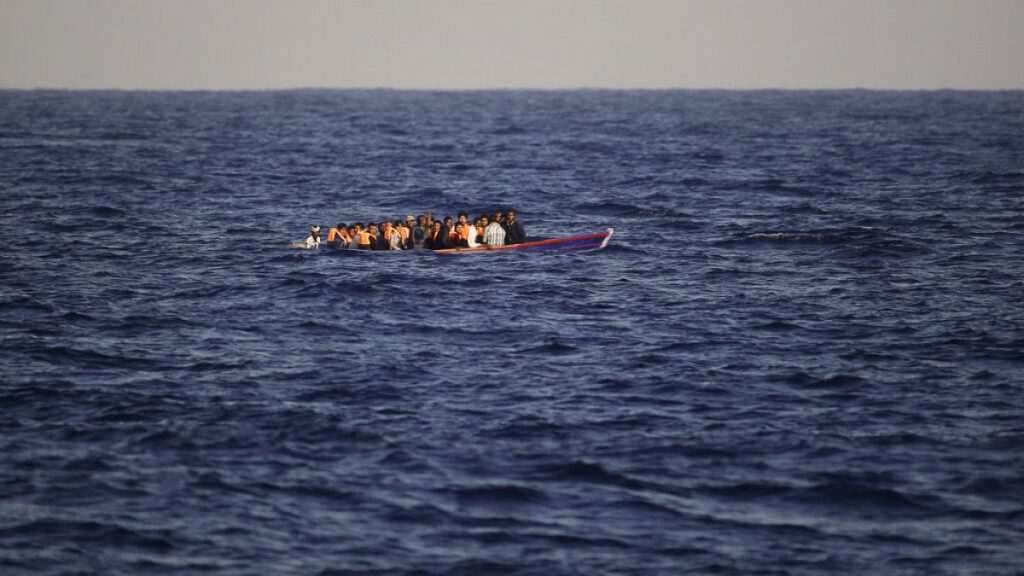The incident of a migrant boat capsizing off the coast of Libya, with 22 out of 32 people missing and presumed drowned, has brought attention to the ongoing dangers faced by migrants attempting to reach Europe. In another incident, Libya’s coast guard intercepted 64 migrants bound for Europe off the north-western town of Sirte and returned them to shore. The migrants, including women and children, were then seen disembarking before the boat was set on fire to prevent it from being reused by traffickers. These incidents highlight the challenges faced by migrants who are fleeing war and persecution in Africa and the Middle East by crossing the Mediterranean through Libya, a country that has been plagued by chaos since the 2011 NATO-backed uprising that ousted Moammar Gaddafi.
Libya has emerged as a dominant transit point for migrants trying to reach Europe, with many vulnerable to abuse while waiting for a boat to make the perilous crossing. Some end up locked up in prison or forced to pay exorbitant sums to traffickers in order to attempt the dangerous journey. Despite a significant decrease in the number of migrants arriving in Italy compared to previous years, the dangers for those attempting the crossing remain high. The International Organization for Migration’s missing migrants project reported at least 434 deaths and 611 people missing off the coast of Libya between January and August of a certain year, highlighting the perils faced by those attempting the journey.
The situation for migrants in Libya is dire, with many being held in government-run detention centers that are reported to be rife with abuses such as forced labor, beatings, rapes, and torture. These practices have been likened to crimes against humanity by UN-commissioned investigators. The instability and chaos in Libya since the ousting of Gaddafi have created a dangerous environment for migrants attempting to make the journey across the Mediterranean, with little to no protection or support available to them. The combination of the ongoing conflict, the activities of traffickers, and the lack of resources for migrants has resulted in a perilous situation for those seeking refuge in Europe.
The incidents of migrant boats capsizing off the coast of Libya and the interception of migrants by the Libyan coast guard highlight the ongoing humanitarian crisis faced by migrants in the region. The lack of safe and legal pathways for migrants to reach Europe has resulted in many taking dangerous journeys through Libya, putting their lives at risk in the process. The international community has called for stronger protections for migrants in transit through Libya, as well as for efforts to address the root causes of migration such as conflict and persecution in their home countries. Without these measures, the safety and well-being of migrants attempting to reach Europe will continue to be at risk.
The decrease in the number of migrants arriving in Italy compared to previous years does not necessarily mean that the overall situation for migrants attempting the journey across the Mediterranean has improved. The perils faced by migrants in Libya have been well-documented, including the risks of being held in detention centers where human rights abuses are rampant. The continued reports of deaths and disappearances off the coast of Libya underscore the urgent need for international action to protect migrants and ensure their safety on their journey to Europe. Only through coordinated efforts and political will can the lives of migrants be safeguarded and their rights upheld during this challenging and perilous journey.
In conclusion, the incidents of migrants attempting to cross the Mediterranean through Libya, and the dangers they face, highlight the urgent need for international action to protect the safety and rights of migrants. The ongoing conflict, instability, and lack of resources in Libya have created a dangerous environment for migrants, leaving them vulnerable to abuse and exploitation. Stronger measures are needed to address the root causes of migration, strengthen protections for migrants in transit, and provide safe and legal pathways for those seeking refuge in Europe. Without these efforts, the lives of migrants will continue to be at risk as they make the perilous journey to reach safety and security.


